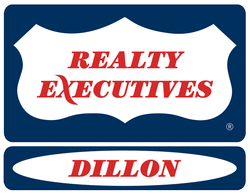
For sellers, this means quicker and easier sales, if they cross their t’s and dot their i’s. For buyers, this means fighting it out with others for their dream home. Here are tips for both sellers and buyers in competitive markets.
Seller: Prepare, inspect, disclose and plan ahead
Although you hold the cards and can call the shots, the market is less forgiving if you make a mistake. Going “back on market” can mean that you will never see the dream deal you had with the first buyer.
The trick is not to lose the first buyer. If you know you have issues, get in front of them. It’s better for you to tell your buyer before they discover it on their own, because once you have a deal, the buyer takes control.
If the roof is old, you have a room that’s not permitted, or you have a small plumbing issue, it’s better for you to tell the buyer in advance, so they can factor that into their offer. Buyers are more forgiving of defects if they are competing with other buyers. But withholding it from them could kill your deal.
Buyer: Be ready to move
Buyers today are aggressive, motivated and quick to act. You must compete with these folks if you are serious about becoming a homeowner in a competitive sellers’ market.
The second a desirable new listing alert hits your phone or email, make a point to see it. If a home goes on the market Tuesday, you can’t expect it will still be available that weekend.
The competitive juices and a strong desire for homeownership will propel a serious buyer to get into a house and make an offer within hours of it listing. If you have a seriously motivated seller, they will work with the buyer and take it off the market. There is nothing more disappointing than to hear a great home is no longer available.
Seller: Have a strategy for dealing with offers
It might seem obvious to take the offer you get two days after going on the market, but are you moving too fast? Will there be others if you wait? You and your agent should know going in what to expect from the market.
There’s no universal approach because each town, county and a market are different. In some, it will make more sense to wait a week to 10 days, have more showings and review any and all offers at once. In others, you might want to act on the offers as they come.
If you take the wrong approach, you might miss out on a better offer to come, or lose the excitement and momentum of your hot-to-trot buyer.
Buyer: Expect to miss out a few times
I always tell buyer that they need to miss out on a few houses to truly appreciate it when the right house comes along.
The process takes buyers in many directions, and is organic in nature. Go with it. You might not offer enough or not act fast enough on one or two homes early on. Missing out motivates you to keep in the market and up the ante.
Plus the more you see homes, the more comfortable you will be with the market and how it works. The first offer you make might be comparable to a home you fall in love with a month later.
Learn from each missed opportunity. Knowing that you lost out once before will motivate you to make the best offer the next time. You don’t know what you don’t know, so be willing to chalk up a loss or two to experience. Plus when you look back, you may realize that a home you thought was perfect wouldn’t have been so great after all.
Seller: Know the competition — and compete
A smart seller will hit the open house circuit weeks before going on the market. Once they are ready to go, they will analyze the “comps”again. The strategic seller will price their home to get the eyeballs and activity.
Chances are you can’t compete with the similar home down the block with the killer kitchen. But price your home well below it, and a buyer sees value and room for improvement in your kitchen.
Today’s buyers like the herd mentality. If someone else wants your home, it must be desirable and valuable, so they want it, too. The well-priced homes that show well will grab the immediate attention of the buyers, and sell faster and for more money.
Be prepared, whether buying or selling
Real estate is expensive, and the process can be stressful. In active markets, both sellers and buyers need to be on their game if they want to successfully buy and sell.
Sellers have the advantage because they can plan in advance of going on the market. They have the luxury of being proactive, and they should use that to their advantage.
Buyers need to be reactive and, as such, they need to be prepared to move on a dime. When all is said and done, life goes back to normal. But prepare for a wild ride in the meantime.



 RSS Feed
RSS Feed
















